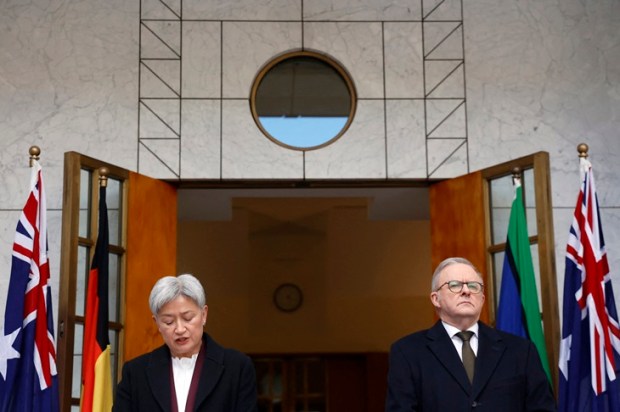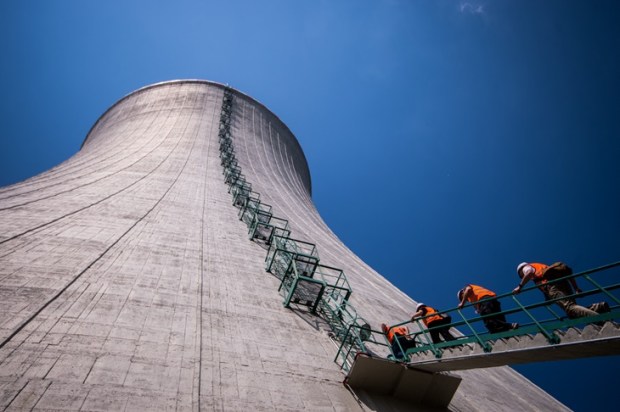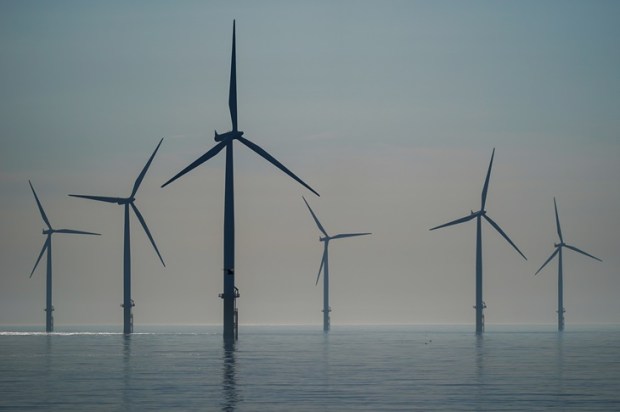‘We’ve done a lot of damage to real climate science by the demonisation of carbon dioxide.’
This was quoted by Professor Will Happer, who I had the privilege to interview last week on the Commanding the Narrative podcast.
Professor Happer was direct and concise in the interview, which was to be expected from a man who was a part of the George H. W. Bush, Bill Clinton, and Donald Trump administrations.
He was also featured in the recent documentary, ‘Climate: The Movie’.
Professor Happer was responding to a question on why natural weather cycles throughout history are ignored by the climate alarmists.
‘There are these natural cycles of warming and cooling, which are really interesting. Very important to mankind; and understanding that has probably been set back by 50 years by this manic focus on CO².’
I found Professor Happer to be one of the most genuinely nice, honest, and knowledgeable people I have interviewed.
As Professor of Physics at Princeton University for over four decades, Will Happer is more than qualified to comment on whether the science is ‘settled’ on climate change.
‘Well, people who say that really don’t know how science works,’ he replied.
‘Science is never settled. I mean, to be a scientist, the first thing you have to do is to question the existing science. When science has settled, that means that it’s no longer science; politics has taken over.’
‘Science is settled by politicians.’
Of course, when climate alarmists are discussing the ‘settled science’, they are referring to climate modelling. Despite ‘modelled’ predictions failing to come true, the narrative persists that ‘global boiling’ is due to humanity’s reliance on fossil fuels.
I asked Professor Happer if we can rely on climate modelling.
‘No. Of course not. Especially for climate because it’s an unbelievably complicated system,’ he replied.
‘You’ve got two major fluid bodies, the atmosphere and the ocean, and fluids are absolutely notorious for being hard to predict.
‘All of these absurd computer models on the effect of CO2 on the atmosphere, they don’t mean anything. They’ll give whatever answer your sponsor would like.’
Instead of focusing on modelling, climate scientists could be looking to the past, when both the Earth’s temperature and carbon dioxide levels varied greatly from that of today.
Yet seemingly, the historical record of climate is ignored. I asked Professor Happer why that is.
‘There are some honest people on the other side, but not many,’ he began. ‘So, most of them are very worried about next year’s funding for their research or next year’s funding for their tax advantages. If there’s no climate crisis to combat, then why pour all this money into finding something that doesn’t exist?’
Next, I played Professor Happer a clip of Teal Independent and Member for Wentworth, Allegra Spender, making a speech in Parliament. In the speech, Ms Spender said, ‘The climate crisis is accelerating and the world’s top climate scientists recently told us they expect global temperatures to blast past 2.5 degrees, causing catastrophic damage to our planet.’
This prompted me to ask Professor Happer how much warming it would take, in his opinion, for there to be a true climate emergency.
‘It’s very hard for Earth to warm much because we’re sitting here glowing in the dark into space,’ he replied. ‘We’re a glowing ember in very, very cold space and the rate of emission of energy from the Earth is a very strong function of temperature. It’s approximately the fourth power of the temperature.
‘That’s a huge factor. There are not many things in nature that go as the fourth power. That means, if you were to double the temperature, you would increase the power to space by 16 times. So, even tiny amounts of warming are completely enough to cope with a little bit of greenhouse gas or some other small effect.
‘So, it’s quite difficult to either increase or decrease the temperature of Earth very much because of this fourth power.’
Australia’s approach to climate science has certainly made an impression on Professor Happer, as he referred to our current approach to climate change with political mistakes of the past.
‘We did it in America with prohibition, which we’ve still not fully recovered from. That’s where all the organised crime families got started.
‘It was much like climate. You couldn’t stop it. There were people … talking about the poor widows and orphans who were going to die if we didn’t vote for prohibition.
‘It was a disastrous experiment. It’s the only constitutional amendment that’s ever been repealed. So, we will eventually get out of this one too. The only question is how much damage is done before we do.’
Professor Happer was very clear in his assessment of the current climate narrative and alarmism, labelling it as a ‘scam’.
He doubled down on this by pointing out how the data has been corrupted over time.
‘[Tony Heller’s] gone to the trouble to get information directly from federal agencies and has pointed out how doctored so much of the data is.
‘You look at the temperature history of the United States, as recorded in, say 1980. It looks completely different today.
‘Usually, it’s the future that you’re uncertain about. But in this country now, it’s not clear what the past is. The past keeps changing.’
Finally, when researching for the interview, I found that Professor Happer has been dismissed from the Department of Energy in 1993 by the Clinton Administration after ‘disagreements’ on the ozone hole.
When I was growing up, the hole in the ozone layer was a massive source of alarm, leading to the banning of CFCs.
I asked Professor Happer if the issue of the ozone layer had been resolved.
‘Nothing has changed really,’ he answered.
‘The ozone hole is still there, just as big as ever.
‘It’s probably always been there. They don’t have good measurements before the satellite era, but there’s some indirect evidence that it was there in the 1920s and 30s.
‘So, we can add that to the list of scams and hoaxes that we’ve had to deal with over the years.’
By Steven Tripp: www.commandingthenarrative.com

























